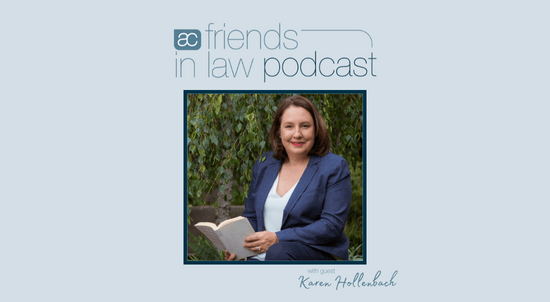
Resumes and CV formats have evolved over time. Having a resume or CV that looks great, represents the very best version of yourself and details your career highlights in a compelling manner and in an impressive format helps you improve your job seeking prospects.
At Alex Correa Executive we see many resumes and CVs each week and, even though they are written by often brilliant and talented lawyers, they are not always impressive. It is useful to remember that your resume or CV may be the very first impression you make to a potential employer. It is your opportunity to help them understand your background, as well as who you are and the value you bring to their organisation.
Our overarching advice when updating your resume or CV for a particular application is to ensure it is tailored to the role you are applying for. It needs to be fit for purpose, so don’t get distracted with fancy graphic designs. Canva and Powerpoint have recently grown in popularity to create visually appealing resumes however, most Applicant Tracking Systems (ATS) used by large employers and some recruitment agencies, are unable to extract or import data from a graphic or picture based PDF. What this means for you is that despite potentially having all the criteria required for a particular role, keyword searching your resume or CV is impossible. Saving your word document in PDF is still okay. Focus on keeping it professional and well-written.
These are our 10 tips to help you craft an impressive resume.
1. Make it Easy to Scan
Did you know that a recruiter or hiring manager usually skims over a resume in the first instance, giving it approximately 6-10-seconds of their attention. This is the brief moment in time we decide whether to move a candidate forward in the hiring process or not.
This means you have a very limited time to engage the reader. Good formatting that makes the information easy to read is very helpful. We recommend you make good use of dot points, bold key information and consider the role of sub-headings. Use a professional font (we suggest Arial, Calibri or Times New Roman) and ensure that your formatting is consistent throughout. Only include a photo if one has been specifically requested.
2. Professional Summary
A modern resume or CV should include a section at the beginning that provides a career statement or professional summary. Think about what is unique about you, the problems that you solve and the expertise that you are known for. Include a clear and concise summary statement that highlights your relevant skills and experience. This should be tailored to the specific job you are applying for and should include keywords that match the job description. If you are looking to transition into an area you don't have prior experience in, make sure to include an aspiration statement on why you are looking to move your career in this new direction and what skills you hope to capitalise on.
3. Be Succinct
Nobody wants to read the ins and outs of every case you have been involved in, so stick to the highlights as much as you can. Consider that you are crafting your resume or CV for a particular role and then use this as a filter to determine the most relevant cases and experience. A good rule of thumb is to keep your resume or CV to 3-4 pages in a readable font size.
Be sure to include the areas of law you have worked in and the types of clients you have represented.
When citing matters, provide details on the size of the matter and any complexities. For confidentiality reasons, describe the type of client rather than disclosing their name.
Consider using the following format:
Date:
Senior Associate, Litigation Team, ACME Law Firm
Case: Commercial Office Tower, Sunshine Coast. Alleged delay, and non-performance. Acted for the co-owners of multi-million-dollar property in relation to the rectification of structural defects and delays.
4. Be Consistent
You may be surprised by the number of resumes and CVs we see that jumble up their tenses when they describe their responsibilities for a role. Your goal is to make it as easy as possible for the reader, so review your resume or CV to ensure the same tenses are used throughout. Either use past tense (engaged, acted, reviewed) or past continuing tense (providing, preparing, reviewing, developing, engaging.) Don’t use a mix of both.
5. Quantify Your Achievements
Consider what it is about the role that you are applying for that would be considered an achievement or a highlight in that role. Are there any similar themes in your own career history? Make sure these are included and are quantifiable by either a dollar value, a description of your high-profile client or a specific result. Consider describing them in ‘from to’ terms as a percentage increase or decrease if the information is confidential.
If you have been published, include the title, publication, and date.
If you have appeared in significant courts or tribunals, include these details here.
6. Consider the Journey
Can you tell from your resume or CV that over time you have earned promotions and taken on more responsibility? We should be able to see career moves that make sense, working your way up through the ranks of an organisation and adding strings to your bow in terms of broadening your experience. Include the dates of your employment and a brief description of the firm size and your area of specialisation. It is also important for a reader to understand whether you were working autonomously or under supervision. If you lead or have led a team, make this clear.
7. People Skills
Soft skills, also called people skills, are the mix of social and interpersonal skills, character traits, and professional attitudes that all jobs require. Teamwork, patience, time management, communication, are just a few examples. Are you an outstanding communicator? Take the time to highlight the people skills you are renowned for that help make you a well-rounded employee. Maybe it is business development, maybe it is stakeholder management, maybe it is complex problem solving. Including at least four of these types of skills in your resume or CV, especially the specific people skills mentioned in the job advertisement that you possess, is an effective way to stand out.
8. Include Relevant Qualifications and Memberships
Demonstrating further study after being admitted, shows that you are a continuous learner and are committed to investing in your professional development.
Ensure that you note any practicing certificates and your date of admittance and the relevant court and location. Include any memberships to relevant organisations such as law societies or committees.
9. Include Voluntary or Community Based Experience
Many firms now look for employees that represent their values in the community. If you are volunteering in a pro-bono manner for specific organisations, make sure you include these. By demonstrating volunteer experience, you reveal your commitment to the legal profession and show that you have a well-rounded background.
10. Contact Details
Make it easy for employers and recruiters to get in touch with you. Include a mobile number, a personal email address and a link to your personal LinkedIn profile. Don’t forget to monitor these channels for a response to your application.
Whilst some of our advice is common sense, by taking the time to tailor your resume or CV so that it is relevant to each role you apply for, you’re giving yourself every chance of success. If you keep a close eye on formatting, scan ability and ensuring that you are demonstrating your most relevant achievements and skills, you are a better shot at the short list. And don’t forget to edit it closely for typos!
To access our resume templates, click below for a Skills based resume or CV or for a chronological/ employment history-based resume or CV.
More advice and tips about writing a resume from the Queensland Legal Society can be found here.
If you would like to discuss your career with one of our specialist legal industry recruiters, please get in touch. We are always here to help!
Related Articles





Alex Correa Executive is one of Queensland's leading specialists in HR and legal recruitment consulting.
NAVIGATION
QUICK LINKS
Alex Correa Executive respectfully acknowledges the Turrbul people, Traditional Custodians of the land which we live and work, and pay our respects to elders, past, present and emerging. We extend that respect to all Aboriginal and Torres Strait Islander peoples.





